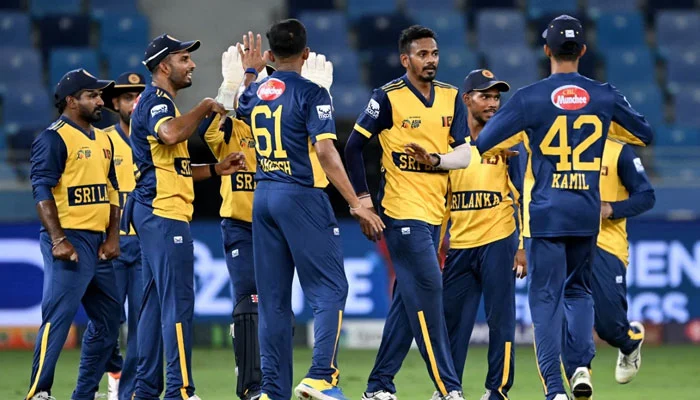Pakistan Squad Faces Uncertainty After T20I Defeat in New Zealand

The Pakistan cricket team is once again under scrutiny following their disappointing T20I series defeat against New Zealand. The tour, which was expected to be a test of Pakistan’s depth and adaptability, exposed several weaknesses within the squad. The loss has raised concerns over team selection, player performances, and overall strategy as the T20 World Cup approaches.
Key Takeaways from the Series

1. Inconsistent Batting Performance
Pakistan’s batting lineup struggled to put up competitive totals throughout the series. While individual performances, such as Babar Azam’s elegant stroke play and Mohammad Rizwan’s steady contributions, showed promise, the overall batting unit failed to capitalize on strong starts. Middle-order collapses and the inability to accelerate in the death overs were major concerns.
Major Batting Issues:
- Over-reliance on Babar Azam and Mohammad Rizwan.
- Lack of aggressive middle-order batters.
- Poor finishing in the death overs.
- Failure to rotate strike effectively against spin.
- Absence of power-hitters who can clear the ropes consistently.
2. Bowling Lacks Penetration
Pakistan’s pace attack, once regarded as their biggest strength, lacked the sharpness required to dismantle New Zealand’s powerful batting unit. Shaheen Afridi’s return from injury has not yet seen him at his best, while Haris Rauf and Naseem Shah struggled with consistency. The spin department, led by Shadab Khan, also failed to make a significant impact, allowing New Zealand batters to dictate terms.
Bowling Concerns:
- Inconsistent lengths and poor execution under pressure.
- Ineffective spin bowling in middle overs.
- Lack of a dependable fifth bowling option.
- Struggles in the death overs leading to high run leaks.
- Overuse of predictable bowling plans, making it easier for opposition batters.
3. Tactical Errors and Team Selection Concerns
Pakistan’s team management faced criticism for questionable selections and tactical decisions. The persistence with out-of-form players and an unclear approach towards the batting order left many fans and experts baffled. The lack of a reliable finisher in the lower middle order remains a glaring issue.
Key Tactical Mistakes:
- Poor batting order adjustments.
- Persisting with out-of-form players.
- Failure to rotate bowlers strategically.
- Underutilization of key all-rounders.
- Defensive captaincy in high-pressure situations.
4. Fielding Woes Continue
Despite improvements in recent years, Pakistan’s fielding standards were once again exposed. Dropped catches and misfields at crucial junctures allowed New Zealand to pile on the pressure, making it even harder for Pakistan to stage comebacks in matches.
Common Fielding Errors:
- Dropped catches in critical moments.
- Misfields leading to extra runs.
- Slow and ineffective ground fielding.
- Poor communication between fielders leading to unnecessary overthrows.
- Lack of intensity in high-pressure fielding situations.
What’s Next for Pakistan?

With the T20 World Cup on the horizon, Pakistan needs to address these issues urgently. The team management must reassess the squad composition, ensuring a balanced mix of experienced campaigners and young talents. More clarity on roles, particularly in the batting lineup, is essential for consistent performances.
Potential Solutions:
- Reshuffling the Batting Order: Introduce aggressive middle-order hitters.
- Bowling Adjustments: Work on death-over bowling and introduce more variations.
- Improving Fielding Standards: Increase fitness drills and specialized fielding sessions.
- Better Team Selection: Pick players based on current form rather than reputation.
- Utilizing All-Rounders Effectively: Provide more opportunities for multi-dimensional players.
- Strengthening Mental Toughness: Work on handling pressure in crunch situations.
Moreover, Pakistan’s pace battery needs to regain its lethal edge, while the spin attack must evolve to be more effective in different conditions. Fitness and fielding drills should also be intensified to minimize costly errors.
Additional Areas of Concern

1. Leadership & Captaincy Questions
Babar Azam’s leadership has been under scrutiny, with questions being raised about his tactical decisions, on-field adaptability, and ability to inspire the team in high-pressure matches. There have been growing calls for a more aggressive captain who can bring tactical flexibility and motivation to the squad.
Leadership Challenges:
- Inability to make quick adjustments during matches.
- Lack of assertiveness in decision-making.
- Communication gaps with players and support staff.
- Over-reliance on personal performance rather than team cohesion.
2. Mental Resilience & Performance Under Pressure
Pakistan has often struggled with mental toughness in critical moments. Close games that should have been won were lost due to panic under pressure, misjudged shots, and poor execution of plans in the final overs.
Mental Blocks to Overcome:
- Fear of failure leading to tentative gameplay.
- Lack of calmness in pressure situations.
- Failure to handle opposition mind games effectively.
- Over-reliance on a few key players to deliver match-winning performances.
Final Thoughts
Pakistan’s defeat in New Zealand serves as a wake-up call. While the talent is undoubtedly there, execution and strategy must improve. With upcoming series and preparation camps, the coaching staff and selectors must work together to find the right combination ahead of the T20 World Cup. Only time will tell if Pakistan can bounce back stronger and reclaim their dominance in the shortest format of the game.
Pakistan cricket fans will be hoping that lessons are learned quickly, and the team can turn things around before the mega event. If Pakistan can address these issues with smart team management and tactical improvements, they still have the potential to be strong contenders on the global stage.




